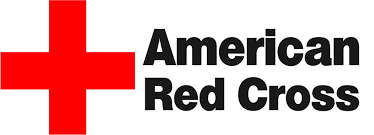Frequently Asked Questions
Please refer to the web page on Burn Permits for detailed information.
A portable fire extinguisher can save lives and property by putting out a small fire or containing it until the fire department arrives, but portable extinguishers have limitations. Because fire grows and spreads so rapidly, the #1 priority for residents is to get out safely.
Front Range Fire Rescue does not offer service or accept fire extinguishers.
District regulations require that fire hydrants have a minimum clearance of 3 feet on all sides of the hydrant. If you have a fire hydrant on your property, you may landscape around it if there is at least 3 feet of clearance, and it can be easily accessed in the event of a fire and for maintenance.
Although we have detailed information on the locations of a; fire hydrants, it can be difficult to locate and connect to a hydrant in an emergency if a hydrant is obstructed by bushes, trees, fences, decorative walls or other forms of landscaping. If you have a fire hydrant located on your property, the District requests your assistance in maintaining the required clearance. Please keep bushes, trees and landscape plants trimmed and remove any obstructions from around the hydrant. In the event of a fire, every second counts!
Front Range Fire Rescue must be able to easily connect hoses and equipment to hydrants during emergency situations, and the water district must be able to safely access the hydrant to perform maintenance. Please do not park in front of fire hydrants.
Disasters and Emergencies
Know what disasters and hazards could affect your area, how to get emergency alerts, and where you would go if you and your family need to evacuate.
Are You Signed Up for Emergency Alerts?
To sign up for CodeRED Weather Warning alerts, visit the CodeRED website or call (970) 304-6540.
Where will your family be when disaster strikes? They could be anywhere--at work, at school, or in the car. How will you find each other? Will you know if your children are safe? Disaster may force you to evacuate your neighborhood or confine you to your home. What would you do if basic services--water, gas, electricity or telephones--were cut off?
Emergency Preparedness/72-hour Emergency Kit
The 72-hour survival kit should be Winter is coming-be prepared made to reflect the needs of all the individuals in your household for 3 days to 1 week. Emergency supplies should be stored accessibly should you need to evacuate, such as in a duffel bag or suitcase.
Emergency Kit
- 1 Gallon of water per person per day.
- Identify the storage date and replace as needed.
- Non-perishable packaged or canned food.
- Be sure to have a non-electric can opener.
- A change of clothing, rain gear and sturdy shoes.
- A first aid kit and manual.
- Be sure to include extra prescription medications.
- Candles and waterproof matches.
- Blankets or sleeping bags.
- An extra pair of glasses or extra contacts.
- A battery-powered radio with extra batteries and a flashlight.
- Cash.
- An extra set of car keys.
- A list of physicians, neighbors and emergency phone numbers.
- Special items for children and elderly family members, as well as for your pets.
Car Kit
- Battery-powered radio
- Booster cables
- Bottled water
- High-energy foods such as granola and peanut butter
- Kitty litter
- Use under your tires for traction on ice
- Blanket
- Fire extinguisher
- A five-pound A-B-C type
- Maps, shovel and flares
- Tire repair kit and pump
Copies of Legal Documents
- Marriage License
- House Mortgage
- Vacation Home / Property Ownership
- Automotive Ownership
- Wills
- Jewelry Appraisals
- Drivers Licenses
- Trailers, Snowmobiles, Boat Ownerships
- Insurance Polices
- Bank Accounts
Other Needs
- Plans to stay in contact with family and friends.
- Have a pre-determined location for everyone to meet. Make sure that it is outside your neighborhood is case you can’t return because of flooding, fires, or another emergency event.
- Pen and paper.
- Work gloves
- Basic tools – Utility knife, duct tape, ax, shovel, etc.
Practice and maintain your plan
Ask questions to make sure your family members remember meeting places, phone numbers, and safety rules. Conduct drills. Test your smoke detectors monthly and change the batteries two times each year. Test and recharge your fire extinguisher(s) according to manufacturer's instructions. Replace stored water and food every 6 months.
Order Free Preparedness Materials
Order free preparedness materials from FEMA’s online ordering platform. These materials can be shipped directly to you at no cost. Please allow 2 to 3 weeks for delivery. Due to safety precautions put in place to protect employees and customers from COVID-19, you may experience delays. Thank you for your patience at this time.
If you are like millions of animal owners nationwide, your pet is an important member of your household. The likelihood that you and your animals will survive an emergency such as a fire or flood, tornado or terrorist attack depends largely on emergency planning done today. Some of the things you can do to prepare for the unexpected, such as assembling an animal emergency supply kit and developing a pet care buddy system, are the same for any emergency. Whether you decide to stay put in an emergency or evacuate to a safer location, you will need to make plans in advance for your pets. Keep in mind that what’s best for you is typically what’s best for your animals. If you must evacuate, take your pets with you if possible. However, if you are going to a public shelter, it is important to understand that animals may not be allowed inside. Plan in advance for shelter alternatives that will work for both you and your pets. Make a back-up emergency plan in case you can’t care for your animals yourself. Develop a buddy system with neighbors, friends and relatives to make sure that someone is available to care for or evacuate your pets if you are unable to do so. Be prepared to improvise and use what you have on hand to make it on your own for at least three days, maybe longer.
Fireworks present a serious risk of causing accidental fires, injuring people, or even causing death. Visit the Fireworks Information web page for more details.

